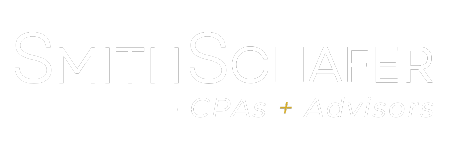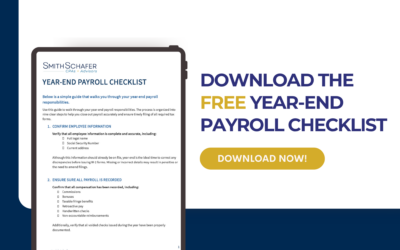Form 1099-K Relief for Small Businesses
In the past, individuals and businesses would only receive a 1099-K form under certain circumstances. This includes when there were over 200 transactions or gross payments totaling more than $20,000 received through payment apps or credit card processors. However, the American Rescue Plan Act drastically reduced the reporting threshold to $600 in payments with no transactional minimum. The change means those receiving 1099-Ks may be required to report and pay more in income taxes. While scheduled to go into effect for tax year 2022, the IRS recently announced that it will be a transitional year. The change occurred because of concerns about lack of guidance, taxpayer confusion, and the impact on the existing IRS backlog. To help clients, prospects, and others, Smith Schafer has provided a summary of the key details below.
What is Form 1099-K?
Form 1099-K generally applies to those in the gig economy or businesses that use payment platforms. The form is meant for the reporting of eligible transactions and payments originating from payment card processors, online platforms, and apps.
Form 1099-K provides information on reportable payment transactions based on the gross amount throughout the year. This can either be payment card transactions or third-party network transactions. Thresholds for reporting, in this case, apply to third-party payment networks. The amount doesn’t include adjustments that may have happened due to discounts, fees, credit adjustments, refunded amounts, or cash equivalents.
What Has Changed?
On December 23, 2022, the IRS reported that the individuals or entities who received transactions of $600 or more through payment apps, websites, and payment card processors wouldn’t be required to receive 1099-K forms. Instead, 2022 would be treated as a transitional year, so the previous thresholds will apply. Despite this, it’s possible that many will receive Form 1099-K’s that did not receive them in prior years. In fact, some may even come in error. It is important to note that no action needs to be taken.
How Should Payments be Filed?
Those who receive a 1099-K this year, correctly or incorrectly, can take the following steps to ensure the appropriate information is reflected in your taxes.
- Individuals – If an individual receives a 1099-K for selling personal items, what you do will depend on whether you sold at a loss, a gain, a mix of the two, or received the form in error. Items you sold at a loss will be recorded as offsetting transactions on Form 1040, Schedule 1, Additional Income and Adjustments to income. Put the item sold on both Line 8z and Line 24z. The report should include: “Form 1099-K Personal Item Sold at a Loss” with the amount. If you sold an item at a gain, it needs to be reported the way it is explained in Instructions for Schedule D (Form 1040).
- Businesses – Self-employed individuals or businesses should ensure books reflect the total business income. This includes anything that is reported on Form 1099-K from payment providers like Venmo and PayPal. The IRS also offers guidance for businesses who believe they have received a 1099-K in error. This may happen if an individual receives a form but reports business income under a TIN, shares a credit card terminal with another business or person, or changed their business entity or ownership, for example.
Contact Us
The recently announced transition provides extra time for Minnesota taxpayers to prepare for changes to Form-1099K. For this reason, it is important to consult with a qualified tax advisor who can assess your situation and determine how you will be impacted. If you have questions about the information outlined above or need assistance with a tax or accounting issue, Smith Schafer can help. For additional information call 952-920-1455 or click here to contact us. We look forward to speaking with you soon.



